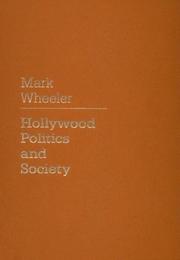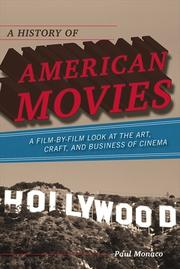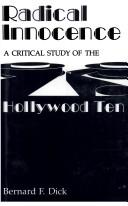| Listing 1 - 10 of 104 | << page >> |
Sort by
|
Book
ISBN: 0826353738 082635372X 9780826353726 9780826353733 Year: 2013 Publisher: Albuquerque, New Mexico : University of New Mexico Press,
Abstract | Keywords | Export | Availability | Bookmark
 Loading...
Loading...Choose an application
- Reference Manager
- EndNote
- RefWorks (Direct export to RefWorks)
"Catherine L. Kurland brings together the contributors of this fabulous photo documentary to help bring attention to the Boyle Hotel, nicknamed the Mariachi Hotel, one of the iconic historical landmarks in Los Angeles that received historic landmark protection in 2007"--
Book
ISBN: 1496202635 9781496202635 0803208804 9780803208803 0803258429 9780803258426 Year: 1957 Publisher: Lincoln ; London : University of Nebraska Press,
Abstract | Keywords | Export | Availability | Bookmark
 Loading...
Loading...Choose an application
- Reference Manager
- EndNote
- RefWorks (Direct export to RefWorks)
Book
ISBN: 1283870002 0253007003 9780253007001 9780253006882 0253006880 9780253006929 0253006929 9781283870009 Year: 2013 Publisher: Bloomington : Indiana University Press,
Abstract | Keywords | Export | Availability | Bookmark
 Loading...
Loading...Choose an application
- Reference Manager
- EndNote
- RefWorks (Direct export to RefWorks)
Cinematic Flashes challenges popular notions of a uniform Hollywood style by disclosing uncanny networks of incongruities, coincidences, and contingencies at the margins of the cinematic frame. In an agile demonstration of ""cinephiliac"" historiography, Rashna Wadia Richards extracts intriguing film fragments from their seemingly ordinary narratives in order to explore what these unexpected moments reveal about the studio era. Inspired by Walter Benjamin's preference for studying cultural fragments rather than composing grand narratives, this unorthodox history of the films of the studio s
Motion pictures --- History --- Hollywood (Los Angeles, Calif.) --- Hūlīwūd (Los Angeles, Calif.) --- Hollywood (Calif.)

ISBN: 0199880034 1283113325 9786613113320 0199762236 9780199762231 0195096487 9780195096484 Year: 1993 Publisher: New York : Oxford University Press,
Abstract | Keywords | Export | Availability | Bookmark
 Loading...
Loading...Choose an application
- Reference Manager
- EndNote
- RefWorks (Direct export to RefWorks)
Twentieth-century Los Angeles has been the locus of one of the most profound and complex interactions between variant cultures in American history. Yet this study is among the first to examine the relationship between ethnicity and identity among the largest immigrant group to that city. By focusing on Mexican immigrants to Los Angeles from 1900 to 1945, George J. Sanchez explores the process by which temporary sojourners altered their orientation to that of permanent residents, thereby laying the foundation for a new Mexican-American culture. Analyzing not only formal programs aimed at these
Mexican Americans --- Ethnicity --- Social conditions. --- Ethnic identity. --- Los Angeles (Calif.)

ISBN: 1838711406 1838716157 1838716165 9781838716158 9781838716165 9781844571352 Year: 2006 Publisher: London : British Film Institute,
Abstract | Keywords | Export | Availability | Bookmark
 Loading...
Loading...Choose an application
- Reference Manager
- EndNote
- RefWorks (Direct export to RefWorks)
"At the beginning of the 21st century, the US film industry had overtaken aeronautics and car industries to become one of the highest exporters of American products. Mark Wheeler's important new book provides both a political history of Hollywood and a reflection on the relationship between cinema and politics in America, from 1900 to the present day. Wheeler considers the interplay between the movies studios, state and national government and cultural policy and legislation, with case studies of the censorship that followed in the wake of the Hays Code 1930 and the investigations of the House Committee of Un-American Activities (HUAC) in the 1950s that led to the notorious blacklisting of alleged or known Communist sympathisers. His history of political constituencies within Hollywood ranges from the conservative right to the liberal and the communist left, from trades unionists to movie moguls. The book concludes with a look at the politics of show business, addressing links between Hollywood and political activism, films such as 'The Candidate' and 'Bulworth' that have themselves engaged with the political process, and considering the irony that despite the fact that Hollywood is perceived as a bastion of liberalism the two most famous actors-turned-politicians have been Ronald Reagan and Arnold Schwarzenegger."--Bloomsbury Publishing.
Motion picture industry --- History. --- Political aspects --- Hollywood (Los Angeles, Calif.)

ISBN: 0810874393 9786612561443 9780810874398 1282561448 9781282561441 6612561440 9780810874336 0810874334 9780810874343 0810874342 Year: 2010 Publisher: Lanham, Md. : Scarecrow Press,
Abstract | Keywords | Export | Availability | Bookmark
 Loading...
Loading...Choose an application
- Reference Manager
- EndNote
- RefWorks (Direct export to RefWorks)
A History of American Movies provides a survey of the narrative feature film from the 1920's to the present. The book focuses on 170 of the most highly regarded and recognized feature films selected by the Hollywood establishment: each Oscar winner for Best Picture, as well as those voted the greatest by members of the American Film Institute.
Motion pictures --- Motion picture industry --- History --- Hollywood (Los Angeles, Calif.)
Book
ISBN: 0472072242 0472120417 9780472120413 1306585074 9781306585071 9780472072248 9780472052240 0472052241 Year: 2014 Publisher: Ann Arbor : The University of Michigan Press,
Abstract | Keywords | Export | Availability | Bookmark
 Loading...
Loading...Choose an application
- Reference Manager
- EndNote
- RefWorks (Direct export to RefWorks)
A look at the poetry of one of America's most populous and fascinating cities, with poems spanning from 1942 to 2012.
American poetry --- History and criticism. --- Los Angeles (Calif.) --- In literature.
Book
ISBN: 1349925926 1838711678 1838716203 9781349925926 9781838711672 9781838716202 9781844573806 9781844573813 1844573818 184457380X Year: 2013 Publisher: London ; New York : Palgrave Macmillan on behalf of the British Film Institute,
Abstract | Keywords | Export | Availability | Bookmark
 Loading...
Loading...Choose an application
- Reference Manager
- EndNote
- RefWorks (Direct export to RefWorks)
"Hollywood is facing unprecedented challenges - and is changing rapidly and radically as a result. In this major new study of the contemporary film industry, leading film historian Tino Balio explores the impact of the Internet, declining DVD sales and changing consumer spending habits on the way Hollywood conducts its business. Today, the major studios play an insignificant role in the bottom lines of their conglomerate parents and have fled to safety, relying on big-budget tentpoles, franchises and family films to reach their target audiences. Comprehensive, compelling and filled with engaging case studies (TimeWarner, DreamWorks SKG, Spider Man, The Lord of the Rings, IMAX, Netflix, Miramax, Sony Pictures Classics, Lionsgate and Sundance), Hollywood in the New Millennium is a must-read for all students of film studies, cinema studies, media studies, communication studies, and radio and television."--Bloomsbury publishing.
Motion picture industry --- History --- Hollywood (Los Angeles, Calif.) --- History.
Book
ISBN: 0820356212 Year: 2020 Publisher: Athens : Baltimore, Md. : The University of Georgia Press, Project MUSE,
Abstract | Keywords | Export | Availability | Bookmark
 Loading...
Loading...Choose an application
- Reference Manager
- EndNote
- RefWorks (Direct export to RefWorks)
Social justice --- Political activists --- Los Angeles (Calif.) --- Social conditions.

ISBN: 0813147719 9780813147710 0813116600 9780813116600 0813193281 Year: 2009 Publisher: Lexington, Kentucky : The University Press of Kentucky,
Abstract | Keywords | Export | Availability | Bookmark
 Loading...
Loading...Choose an application
- Reference Manager
- EndNote
- RefWorks (Direct export to RefWorks)
On October 30, 1947, the House Committee on Un-American Activities concluded the first round of hearings on the allege Communist infiltration of the motion picture industry. Hollywood was ordered to ""clean its own house,"" and ten witnesses who had refused to answer questions about their membership in the Screen Writers Guild and the Communist party eventually received contempt citations. By 1950 the Hollywood Ten, as they quickly became known, were serving prison sentences ranging from six months to a year. Since that time the group, which included writers, directors, and a producer, have be
| Listing 1 - 10 of 104 | << page >> |
Sort by
|

 Search
Search Feedback
Feedback About UniCat
About UniCat  Help
Help News
News